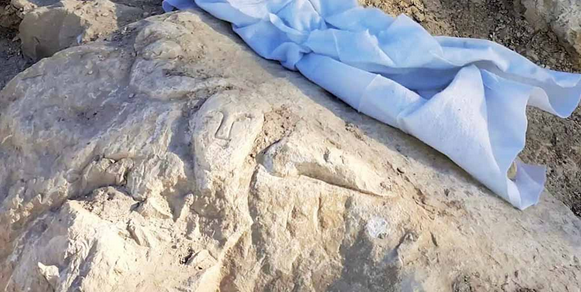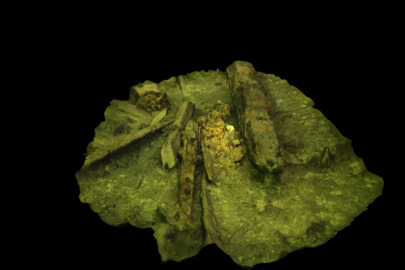Archaeologists in Spain were exploring an ancient Roman fort when they discovered a carved smiley-face, a basket of fruits and a phallus. For answers as to what this carving means, we must delve into Roman mythology, and into the Romans efforts to persuade the forces of nature.
Located near the Mediterranean Sea in the municipality of Benidorm, on the southeastern coast of Spain, Tossal de La Cala is often described as a hilltop ‘fort’ with an extensive necropolis. Dating back to the Bronze Age, archaeologists have recovered pottery, tools, and ornaments, suggesting this site was an ancient trading hub that connected local farmers with other Mediterranean cultures.
Spacetop AR laptop puts the screen on your face
According to Arkeonews, a team of researchers from the University of Alicante have discovered a 2,000-year-old rock carving known as an “inscultura face,” comprising a human face, a cornucopia, and a phallus.
Read more: Ancient Origins





































